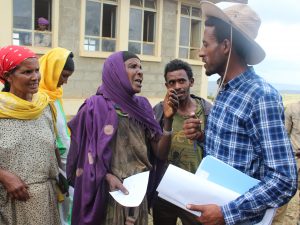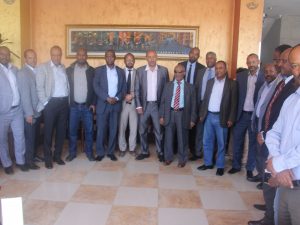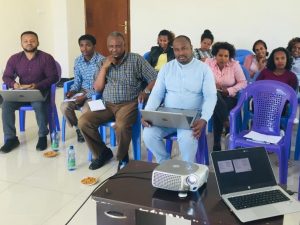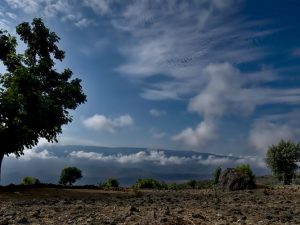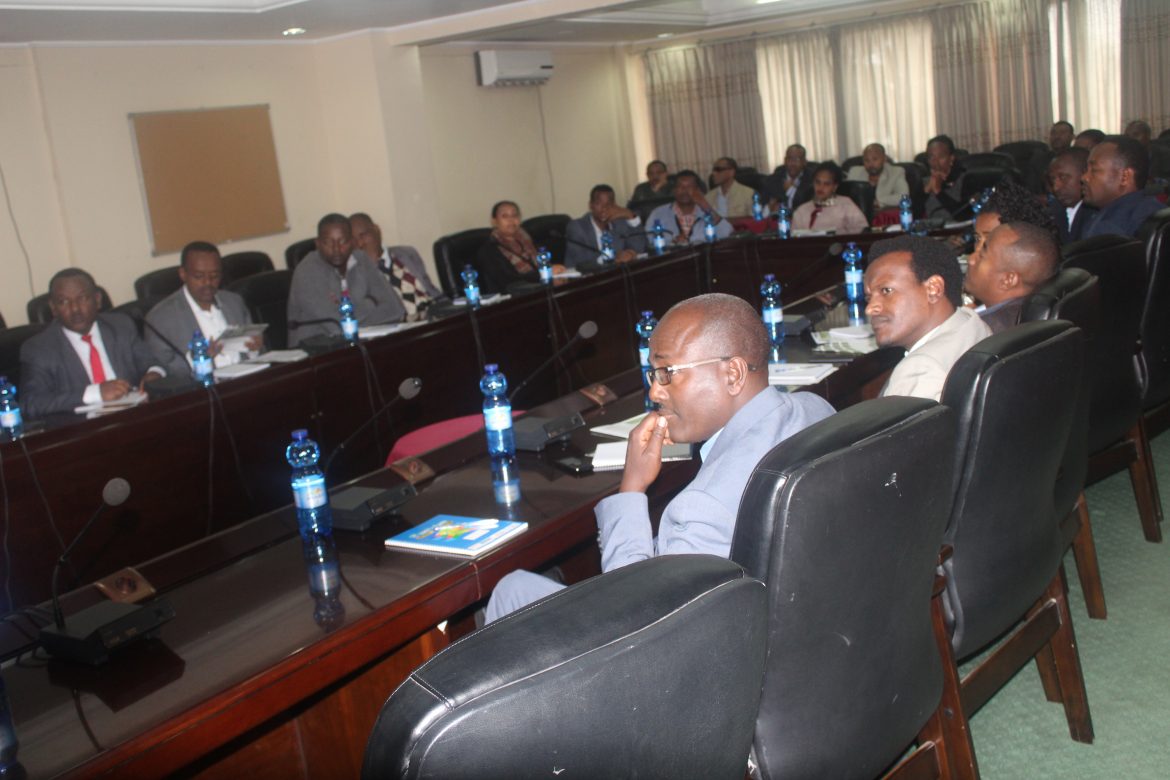
[Header image: Participants at the September 2019 national workshop in Addis Ababa discuss the current legal and administrative constraints that must be overcome so that women and vulnerable groups can maintain their land tenure security after receiving their certificate and benefit from their land rights.]
Through its inclusive approach to land certification, LIFT has ensured that women and vulnerable groups (VGs) are able to receive land titles. However, women and vulnerable groups still face many challenges in maintaining their land rights after receiving their land certificate.
In response to this, LIFT held a national workshop in Addis Ababa on 25 September 2019 to achieve two goals: (1) to inform leading policymakers and stakeholders on the impact of LIFT’s inclusive approach to demarcation, and (2) to present two important studies on the legal and administrative constraints that women and VGs face in maintaining their land rights post-demarcation as well as proposed policy solutions to overcome these issues.
Nearly sixty key actors attended the workshop from offices including the Federal Supreme Court of Cassation, Regional Supreme Courts and Attorney General Offices, Regional Land Administration Bureaus, Regional President’s Grievance Hearing Offices, Federal and Regional Women Affairs Bureaus and Regional Labour and Social Affairs Bureaus. These different offices were represented by senior judges, attorney generals, heads and deputy heads of land administration and use offices, as well as other experts.
In their welcome remarks, LIFT’s Programme Manager Andrew Smith and Deputy Programme Manager Menberu Allebachew expressed their pleasure to see the diverse stakeholders attending the event. They briefed participants on the core achievements of the programme, and the innovative approaches developed to ensure tenure security of women and VGs. It was highlighted that the research being presented were part of LIFT’s wider gender equality and social inclusion (GESI) aims that support and reinforce the successful implementation and delivery of second level land certification (SLLC).
Abebaw Abebe, the Land Law Expert and Land Administration Team Leader from the Ministry of Agriculture presented the first study, which focused on the major legal framework constraints faced by women and VGs in different regions of Ethiopia relating to issues such as matrimonial property and joint registration. Three key issues were identified by the study.
First, there is no consensus on whether joint titling (inclusion of both husband and wife/wives) should be required during certification, and whether land registration itself should be mandatory. The study showed many regional variations in how these matters are understood and interpreted. Second, the period of limitation for bringing forward a complaint in the legal system is a challenge for women and VGs. They often lack the ability to provide evidence and prove forgery, perjury and bribery relating to land violations and so their court cases may be closed due to an inability to gather sufficient evidence in the time allowed. Finally, the study highlighted that many regional laws to protect women are simply not being enforced, such as the issuance of holding certificates with photographs of both the husband and wife.
To address issues concerning these and other land rights, land violations are reviewed by various courts at the woreda, zonal and regional level. However, the courts have very strict requirements in terms of both the evidence required from the victim and short timeline with which they have to act. Although some of the most burdensome procedural requirements have now been removed by the Federal Court of Cassation, many courts are unaware of the change and still apply very strict requirements. The study therefore recommends several actions: (1) The provision of communications and legal training to judges on Federal Court of Cassation decisions; (2) The creation of a good governance task team; (3) Services to better support and represent women and VGs within the justice system.
Mediation was also proposed as a potential conflict resolution mechanism for women and VGs as it would be faster, require fewer resources and be less expensive than going to court. However, it was noted by the study expert that “mediators often tend to follow the discriminatory cultural norms.” Additionally, there are conflicting opinions among regions about whether or not mediation should be mandatory and institutionalized. In the end, the workshop participants reached the consensus that mediation should be optional and that mediators should be chosen by both parties in an effort to better serve women and VGs.
The second study, presented by Dr Ziade Hailu, focused on the impact of LIFT’s Social Development Officers on overcoming the administrative constraints that women and VGs face during the demarcation process as well as what administrative constraints impact women and vulnerable groups’ tenure security upon receiving their certificate. The study was undertaken in 15 sample woredas in the four LIFT regions including 7 woredas with Social Development Officers (SDOs) and 8 without these support staff.
The report found that there were significant differences in registration and mediation process between the two woreda categories with a positive effect of SDO deployment on women and VG land holders and institutions. According to the study findings, the successful documentation of land rights is not a guarantee for these rights to be maintained by women and VGs as new disputes emerged and were reported after certificate distribution. The study found that latent disputes, the types of disputes that had not been brought to anyone’s attention for resolution, are the most challenging.
LIFT proposed two complementary strategies to strengthen dispute identification and resolution capacity for women and VGs. In the short term, the issues could be addressed by strengthening existing multi-stakeholder initiatives in each region. The aim would be to enhance the capacity for local dispute resolution by establishing and/or strengthening good governance task forces and providing ongoing training and experience sharing support. Another strategic intervention would be to improve Woreda land administration office dispute follow-up through the provision of SDO exit reports in those woredas with SDOs and the offer of a short-term SDO intervention to non-SDO woredas. In the long term, the study identified the need for a civil service-based SDO position and the integration of a gender component in the land sector, in line with Ethiopia’s constitution.
In a plenary discussion of both studies chaired by Dr Teferi Gebru, Senior Judge in the Federal Supreme Court, participants contributed useful inputs to enrich the study findings and recommendations. For instance, the discussions identified the need for better mechanisms to hold accountable those perpetrating land right abuses and proposed a review of judgement procedures to ensure that the law is interpreted in the same way across different courts. The workshop also created a forum for learning and sharing and led to agreements on the way forward to implement the proposed strategies. “Your inputs and the outputs of the validation workshop in general will surely benefit the amendment of the federal rural land administration and use proclamation that is underway” Dr. Teferi told the participants. The workshop participants concluded that the studies and suggestions they offered will be crucial to promote improve support and services for women and VGs and better empower them to secure their land rights.
For more information, contact the LIFT communications team at lift@liftethiopia.com



